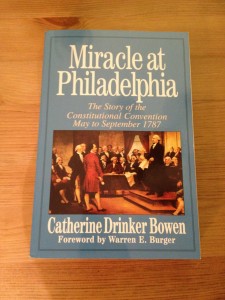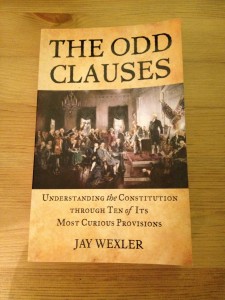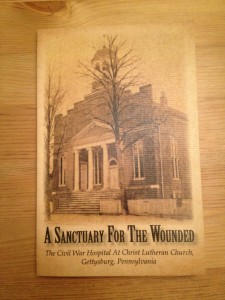Mini-Federalist #6 – Concerning Dangers from Dissensions Between the States
This is a continuation of a series of posts that are intended to be shorter, more understandable versions of the Federalist Papers. This post deals with Federalist #6, the original text of which can be read here: http://thomas.loc.gov/home/histdox/fed_06.html
Originally published November 14, 1787 by “Publius” – who was in this case, Alexander Hamilton.
We spent the last three papers talking about danger from foreign governments. Now, we turn our attention to the dangers of disagreements between the states, or from insurrections of factions of the people.
As we discussed earlier, the States (or the proposed confederacies) would certainly have conflicts if left dis-united. Some people might say that there’s no reason for any trouble to crop up, but they forget that human nature inclines men toward greed and ambition. There are a million reasons why hostilities would be inevitable: desire for power, competition in trade, a need for security (even if unwarranted), or just plain fear of others.
You know that history is filled with examples: think of the Peloponnesian War, or of Cardinal Wolsey and Henry VIII, or the more recent case of Shay’s Rebellion in Massachusetts. I could go on and on.
Even though history is against them, some will still argue that the commercial interests of each State or confederacy will keep them on friendly terms with each other. But if this is true, wouldn’t it be true for all the other countries of the world, too? Isn’t it more likely that temporary passions and selfish motives will rule the day?
Proponents may reply that those things happen with kings – not commercial republics like ours – but aren’t both monarchies AND republics led by MEN? The republics of Rome, Sparta, Athens and Carthage all went to war regularly. The commercial republic of Holland has been embroiled in wars with France and Britain (itself highly engaged in commerce, and with some republican elements in her government, is certainly no stranger to war). The same impulses of greed, rage, and resentment exist in both types of governments if left unchecked. Sometimes these impulses are brought on by the people themselves (even when it is against their own best interests). In reality, the expansion of commerce hasn’t led to less conflict – countries merely fight about different things now (like maintaining their own commercial standing, for one).
So how much confidence can we have in those who claim that commercial interests will keep the States or proposed confederacies from fighting with each other? We have to take off the rose-colored glasses and step back into reality!
We’ve already seen unrest in North Carolina, Massachusetts and Pennsylvania. We’ve witnessed our credit and dignity diminish. Don’t fall victim to the false sense of security that is being sold by those who tell you that somehow it would all be OK if the States went it alone. Consider this thought from a wise author:
“NEIGHBORING NATIONS are naturally enemies of each other unless their common weakness forces them to league in a CONFEDERATE REPUBLIC, and their constitution prevents the differences that neighborhood occasions, extinguishing that secret jealousy which disposes all states to aggrandize themselves at the expense of their neighbors.”
In this one sentence, we get both the PROBLEM and the SOLUTION.


